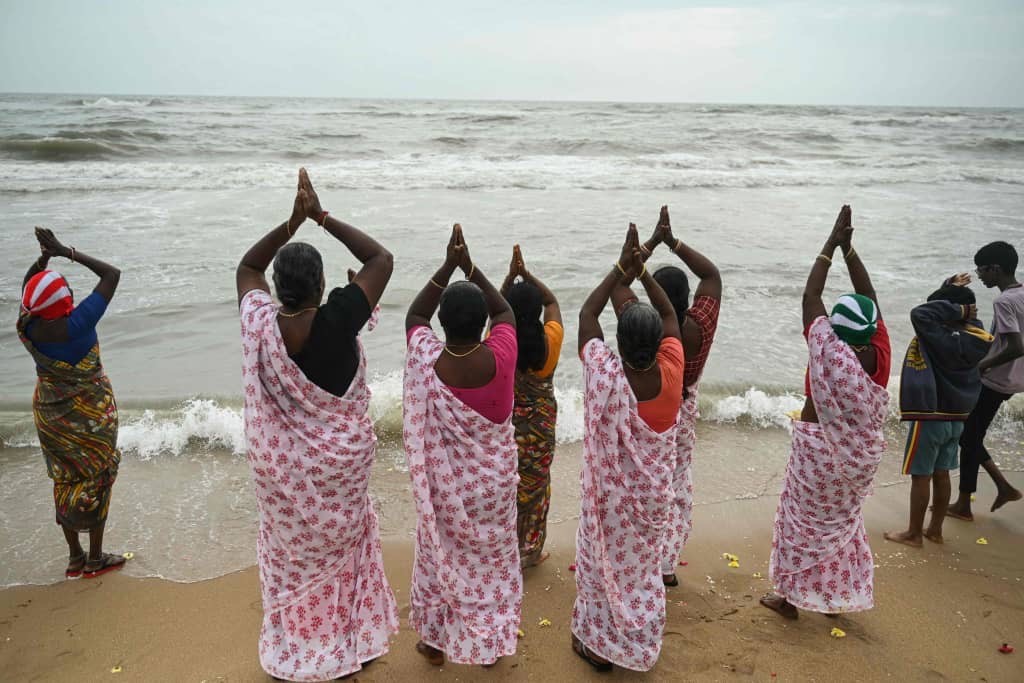DAKAR – Africa is on the move but rich countries must do more to dismantle trade subsidies if living standards are really to improve in the world’s poorest continent, according to the World Bank’s deputy head.
Juan Jose Daboub, a former Salvadorian finance minister who took over as the bank’s managing director in July, said he had been impressed during his first visit to the world’s poorest continent by the vibrancy of the private sector. “Africa is on the move.There are definitely a lot of good signs, a lot of positive signs,” Daboub told a news conference in the Senegalese capital Dakar at the weekend.”The path to prosperity means generating opportunities for people to take destiny into their own hands.”Despite Africa’s rosiest economic outlook in more than a decade, Daboub said obstacles to private investment in the continent of 900 million people still needed to be torn down.He cited endless red tape in some states, a bewildering array of internal tariffs and taxes, and persistent graft.In Senegal, as in many parts of Africa, frequent power cuts also discouraged investors, he said.But he praised government efforts to encourage telecoms businesses to come to the poor West African state.”I visited a call centre yesterday that created 500 or 600 jobs that didn’t exist before: people who now have interesting jobs and money,” he said.”The private sector is the only one that can give people jobs.”The bank has committed up to US$900 million to 20 projects in Senegal, including an agricultural project that the managing director visited at Sangalkam, some 50 km outside Dakar, producing fruit and vegetables for export to the Europe.Kaboub echoed recent remarks by World Bank President Paul Wolfowitz that, even more than foreign aid, removing trade barriers was essential to lift Africa out of misery.”When I met the exporters in the field yesterday …they expressed concern about this,” Daboub said.”We cannot have subsidies in large countries like the United States in the agricultural sector which increase the price to the people in poor ones.”He expressed hope that the current suspension of the Doha round of world trade talks was just a “recess” and that a successful deal could be reached to remove subsidies.The Doha negotiations were suspended in July amid finger-pointing over subsidies and tariffs on farm goods.Cotton producers in West Africa, for example, allege US subsidies totalling US$5 billion last year are forcing down world prices and driving them deeper into poverty.”We will insist from the economic perspective on the need to give up subsidies,” Daboub said.”One side has to give up, it is no more complex than that …It is a question of giving something up which will not, economically speaking, cause problems in their countries.”Nampa-Reuters”Africa is on the move.There are definitely a lot of good signs, a lot of positive signs,” Daboub told a news conference in the Senegalese capital Dakar at the weekend.”The path to prosperity means generating opportunities for people to take destiny into their own hands.”Despite Africa’s rosiest economic outlook in more than a decade, Daboub said obstacles to private investment in the continent of 900 million people still needed to be torn down.He cited endless red tape in some states, a bewildering array of internal tariffs and taxes, and persistent graft.In Senegal, as in many parts of Africa, frequent power cuts also discouraged investors, he said.But he praised government efforts to encourage telecoms businesses to come to the poor West African state.”I visited a call centre yesterday that created 500 or 600 jobs that didn’t exist before: people who now have interesting jobs and money,” he said.”The private sector is the only one that can give people jobs.”The bank has committed up to US$900 million to 20 projects in Senegal, including an agricultural project that the managing director visited at Sangalkam, some 50 km outside Dakar, producing fruit and vegetables for export to the Europe.Kaboub echoed recent remarks by World Bank President Paul Wolfowitz that, even more than foreign aid, removing trade barriers was essential to lift Africa out of misery.”When I met the exporters in the field yesterday …they expressed concern about this,” Daboub said.”We cannot have subsidies in large countries like the United States in the agricultural sector which increase the price to the people in poor ones.”He expressed hope that the current suspension of the Doha round of world trade talks was just a “recess” and that a successful deal could be reached to remove subsidies.The Doha negotiations were suspended in July amid finger-pointing over subsidies and tariffs on farm goods.Cotton producers in West Africa, for example, allege US subsidies totalling US$5 billion last year are forcing down world prices and driving them deeper into poverty.”We will insist from the economic perspective on the need to give up subsidies,” Daboub said.”One side has to give up, it is no more complex than that …It is a question of giving something up which will not, economically speaking, cause problems in their countries.”Nampa-Reuters
Stay informed with The Namibian – your source for credible journalism. Get in-depth reporting and opinions for
only N$85 a month. Invest in journalism, invest in democracy –
Subscribe Now!







